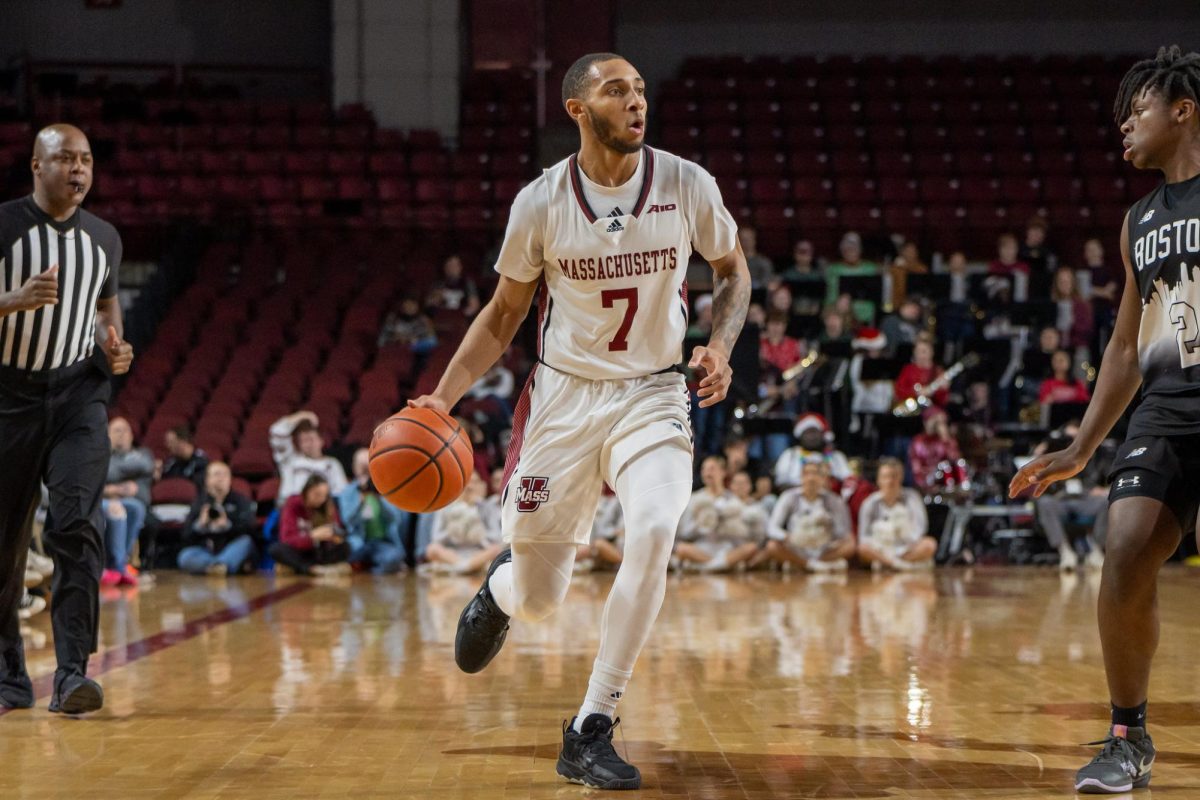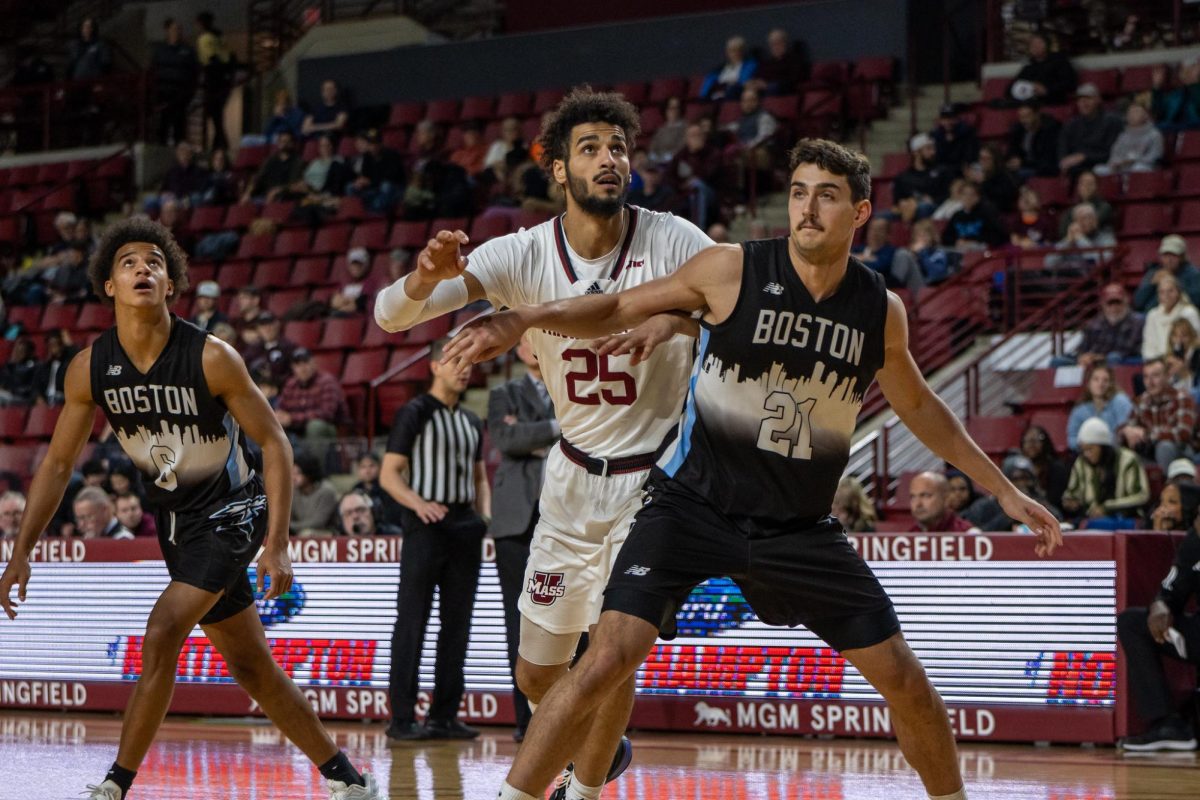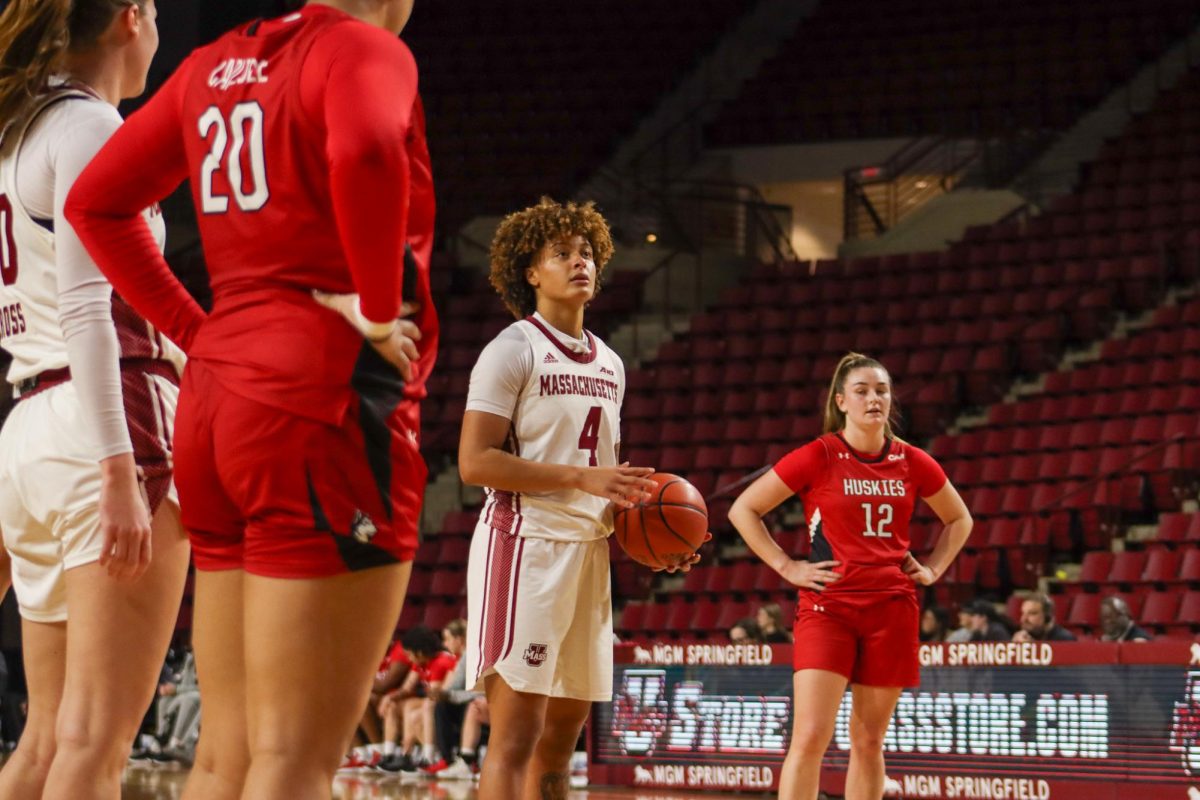Universities are finding themselves trapped at the center of a bitter battle over bandwidth, caught between the entertainment industry’s crusade to end copyright piracy and tech-savvy students’ casual sharing of songs and movies.
The competing interests converged at a Digital Expo at Washington University, bringing together representatives from entertainment and technology with seven companies that market “peer-to-peer” file-sharing networks to colleges. The goal of the vendor fair and panel discussion Thursday night was to educate students about legal alternatives to trading copyrighted materials.
“I don’t want to pay to download songs. If I really like something, I’ll just buy the CD,” said Scott Abrahams, 19, of Northbrook, Ill., a sophomore who estimated that he has collected thousands of digital music files on his computer, a playlist long enough to run for two weeks nonstop.
Students said the perception is that there’s little risk of getting caught downloading copyrighted music and movies (they call it “ripping” or “burning”) online. Some said they would be more willing to pay if their schools made it cheap and convenient.
“If (the university) were to sponsor something, I think it would make it more of an approachable option for us,” said senior Jeffrey Dorr, 21, a senior pre-medical student from Miami.
That’s what some schools, including Washington University and the University of Missouri at Columbia, are doing. They seek to weed out illegal sharing by arranging deals with a bevy of new digital wholesalers licensed to provide libraries of digital music and movies to colleges.
Recording and film industry representatives at Thursday’s event said they embrace innovation and encourage technology companies to pursue legal alternatives to Internet piracy.
Technology has changed the entertainment business model by forcing it to cater to changing consumer demands for digital music, said Mark P. McKenna, a St. Louis University law professor representing the Electronic Frontier Foundation, a San Francisco digital rights group.
As a result, universities face the challenge of balancing academic freedom against a duty to police digital piracy on campus, explained Rebecca Brown, Washington University’s associate general counsel.
Several large institutions, such as the University of North Carolina at Chapel Hill, Pennsylvania State University, Purdue University and the University of Maryland, recently partnered with file-sharing companies to provide students legal access to digital media.
On March 29, the U.S. Supreme Court heard arguments in the closely watched Metro-Goldwyn-Mayer Studios Inc. v. Grokster Ltd. case, a test of whether copyright holders can sue digital file-sharing networks that allow people to freely download and distribute songs and movies. A ruling is expected this summer.
Technology companies fear that a ruling for the studios could stifle innovations, such as digital television recorders and music players. In the past, lower courts have said that technology companies cannot be held liable for how customers use their products, even if it’s illegal.
Those decisions relied on a 1984 Supreme Court ruling in the case of Sony Corp. v. Universal City Studios_the “Betamax case”_in which the court rejected the studios’ attempt to block the sale of the home video player/recorder.
“In the dorms, you’ve got kids who love music, kids who understand technology on a regular basis and kids who have access to high bandwidth,” said Jonathan Whitehead, 37, a Washington lawyer representing the Recording Industry Association of America. “It’s sort of like a perfect storm.”
It is no coincidence, Whitehead said, that the industry has seen a 22 percent drop in record sales since the file-sharing program Napster hit the market in 1999.
Research suggests that fee-based digital downloading is growing in popularity. A survey released last month by the Pew Internet ‘ American Life Project said about 36 million Americans_an estimated 27 percent of all Internet users_have downloaded music or video files. The survey also showed that the percentage of Internet users who have paid to download music has increased by 4 percent since January.
A one-month survey released in February by the consumer research firm Ipsos-Insight said nearly half of American downloaders 12 years and older, or 24 million Americans, had paid to download music.
So far, at least 45 colleges and universities have signed deals with file-sharing companies. By subscribing, students benefit from discounted rates and don’t have to worry about breaking the law. Schools save money on the cost of bandwidth_the speed of data traveling over the Internet_by storing digital content on campus computer servers. Schools also save time otherwise spent investigating complaints from the record and film industries.
Companies represented at Thursday’s fair were Ruckus Network, Cdigix, Movielink, Apple, Napster, Sonicswap and Peer Impact.
Washington University students approached the school’s administration about finding legal downloading alternatives after a popular campus file-sharing program was shut down in February last year. That spurred an overnight protest and a spontaneous early morning rock concert outside a campus residence hall. Since then, students have turned to a slew of other file-sharing programs on campus, said Margaret Bauer, 21, a junior from Florissant and editor in chief of Student Life, the student newspaper.
Unless students can get music cheaply and conveniently, Bauer said, there’s little incentive to pay because they don’t expect to get caught.
“I feel like if it’s easier to do it illegally, then they’ll do it that way,” Bauer said. “It’s just another bill to pay each month and that’s a pain.”
The file-sharing programs vary slightly, but most charge monthly fees for unlimited access to millions of songs and movies from major producers. Some schools pass on the cost by including subscriptions in their fees. Washington University and Mizzou say they are exploring both options.
“It’s so hard to go from not paying to paying,” said Ben Rapaport, 20, a Washington University sophomore from Scarsdale, N.Y., who has collected about 8,000 songs on his computer.
Illegal file sharing at Mizzou spiraled “so out of control,” said Beth Chancellor, director of telecommunications there. She said campus piracy has waned since April 2003, the month that record and film industries filed a combined 400 official copyright complaints against Mizzou students. The university plans to have a commercial file-sharing service in place by fall.
Students at Northern Illinois University, in DeKalb, Ill., have tested a file-sharing service from Ruckus Network since the fall, said Cindy Phillips, director of customer support services. Phillips said students enjoy watching movies on their dorm-room computers but will have little incentive to pay for digital music once the trial period ends next month.
St. Louis University and Southern Illinois University Edwardsville are not yet in the market, but the University of Missouri at St. Louis is considering it, officials said.
The University of Illinois is waiting to see which file-sharing services survive legal and commercial tests before subscribing to one for the school’s 55,000 networked computers, said Mike Corn, the university’s director of security services and information privacy.
“We watch this constantly. This is not one of those issues that’s going away,” Corn said. “If we guess wrong, we can’t afford to lose a lot of money.”
Whoever the Supreme Court says is responsible in the showdown between entertainment and technology, universities will likely try to keep tempo with a culture of digital diehards high on bandwidth.
“I don’t think they’ll ever be able to get rid of file sharing,” said John Klacsmann, 20, a Washington University sophomore from Augusta, Ga. “They’ll never be able to shut it down.”
< /p>






